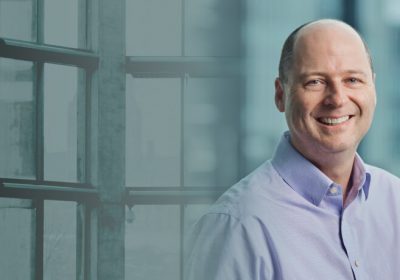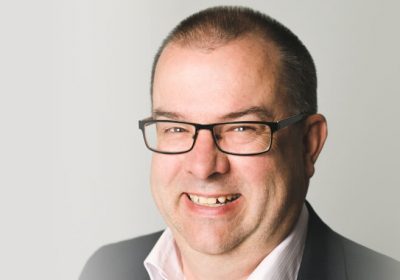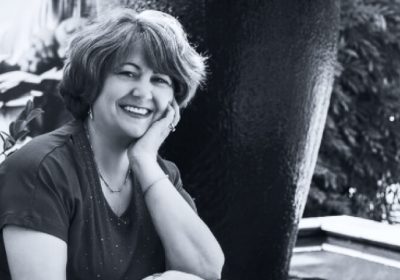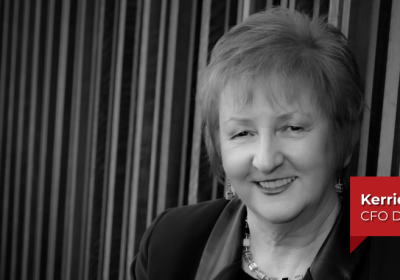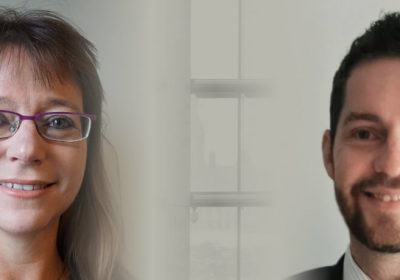
- Author: Jessica Mudditt
- Posted: September 26, 2023
Buzz CFO Sarah Petty on her journey to CFO
Sarah Petty became CFO of Buzz in July after a broad finance career at household retailers and FMCG companies. She shares advice for taking the next step as a senior finance professional.
Until recently, Sarah Petty worked in finance roles in multinationals and ASX-listed companies. She covered a broad range of responsibilities in accounting, FP&A, sales, supply chain and strategy at organisations that included GE, Kraft, Kelloggs, Lion and Bega.
In July, she left her role as head of financial control at Target to become the CFO of Buzz. The Melbourne-based product design agency collaborates with brands to create products for the travel industry, such as airline amenity kits, kid’s activities, meal service, blankets, pyjamas, and hotel amenities including turndown items. Buzz has airline and hotel clients across the United States, Asia, Europe, Australia and the Middle East.
The Covid-19 pandemic brought the travel industry to a standstill, however business has rebounded for Buzz, with both business and leisure travel increasing rapidly over the past year.
In contrast to her previous employers, Buzz is a privately-owned, family-run business, which means that it has a different work culture and her role is broader in its scope.
“Buzz was started by a very entrepreneurial family who have been successful in business for a long time,” says Petty. “There’s a real culture of working together to problem-solve and get things done. The business is moving at a fast pace so you have to be agile, and things can change direction quickly. I enjoy that aspect of it.”
Petty was keen to leverage her corporate and leadership experience to lead the finance function at Buzz.
“In this role I feel that there is a greater degree of autonomous decision making. In large corporates there are generally layers of approvals and formal processes around decision-making,” she says.
The first 60 days
Petty has hit the ground running by learning as much as she possibly can about the business model. Central to absorbing information about the company’s clients, suppliers, budgets, results, and new markets is communicating with staff at all levels of the business.
“Some of the questions I ask are things like, “What is the process of designing our product through to getting it to our end customer? What are the pressure points and challenges my team members are facing? What are the strengths across the team?”
In a new role it can be tempting to launch widescale changes that aim to maximise efficiency and returns. However, Petty knows that a carefully considered approach will prove more effective in the long term.
“As I’m having these conversations, I’m developing a list of things that I want to know more about, or that may need some change,” she says. “But I’m noting it down to keep track of it – I’m not going full steam ahead towards changing something before I understand it.”
Petty has a product background, although her previous experience was in FMCG and retail and the products were generally well-established and in mature markets. She understands manufacturing and how to get a product out – and she was keen to step outside her comfort zone. She had enjoyed the experience of working in Singapore for Kellogg’s on its emerging markets in Asia and Africa.
“Previously, the markets I’d worked in were all relatively stable, and so you’re looking to obtain a narrow competitive edge over market rivals, whereas in this case, some of the countries that we were going into had never sold Kellogg’s products before – it was completely new.”
Petty will leverage that experience in an industry that is undergoing rapid change, with sustainability now a key driver of commercial success. The hotel space has moved away from single-use packs to embrace refillable bottles for items like shampoo. Recycled materials and those with a longer life span are also sought out by manufacturers.
The value of mentors
Petty began her finance career with GE on the Financial Management Program in 2006 – her journey to becoming a CFO has been swift. She credits coaching as a valuable tool in her professional development. She took advice from a variety of mentors about taking her current role.
“I believe that you need something akin to a board of directors in your career. There’s not one person who can give you all of the advice you need to make your next decision,” she says.
“Everyone’s experience is quite different. I have several mentors – some are strong in people management, while others are more technical. I value their different perspectives.”
Petty has also worked with formal coaches to round out leadership skills and confidence. She worked with her previous coach for close to three years but has also worked with coaches for a shorter duration with a specific focus. Carving out time can be challenging in demanding roles, but she has always found benefits from prioritizing it.
As the skillsets of contemporary CFOs continue to broaden – particularly around emerging technology and automation – her approach to coaching will put her in good stead for ongoing professional progression.
3 Key Pieces of Advice from Sarah Petty, CFO | Buzz
Be people-focused
“The marketplace is becoming more competitive and finding good talent is more difficult. CFOs need to be a lot more people focused. They’re not just the number crunchers anymore. As we’re automating processes and finance teams are doing less transactional work, it is really important that you are developing the talent in your teams.”
Be informed about trends in tech
“CFOs need to be able to harness new tools. You don’t have to be a technical expert, but you need to be informed about what’s happening in your industry. LinkedIn is a great resource for staying up to date, as are industry events. You can often get a demo of new technology to see if it’s something that could be a good fit for your company.”
Understand business operations
“In the past, the finance function was focused on crunching the numbers and generating reports. That is no longer the case. Finance is a valuable partner to the business that helps to drive decision making. You can’t do that without really understanding what your business does and how the operational side of it works.”



